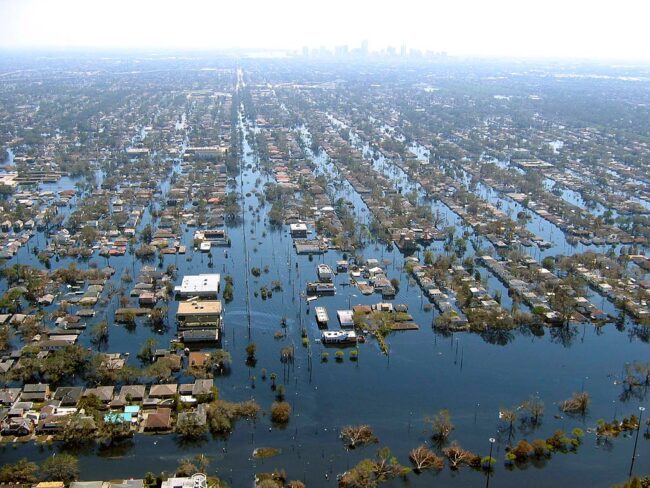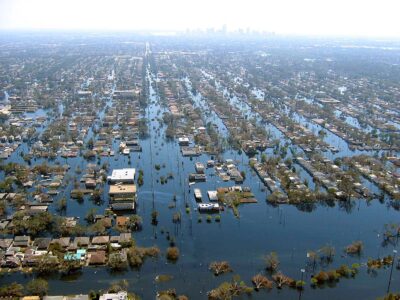Hurricane Katrina
-

Twenty Years Later: What Lessons Have We Learned From Hurricane Katrina?
As the risk of extreme weather grows, Columbia experts revisit Katrina’s legacy and what it means for future catastrophes.
-

Public Health and Climate Change in the Gulf Region
The U.S. Gulf Coast has already felt the lasting effects of extreme weather on public health and infrastructure, and a new study says things could get worse with climate change.
-

The Disaster Profiteers
In his new book “The Disaster Profiteers,” Earth Institute professor John Mutter argues that natural disasters are bad for the poor–and can be great for the rich, who often seize resources meant for recovery, when no one is looking.
-
Sandy’s Impact Lingers, Particularly for Children
Researchers Find Increased Chances of Mental Health Issues
-

NYC, Gulf Coast Teens Talk About Life After Disaster
At the two-year anniversary of Superstorm Sandy, high school students in New York City posed questions about life during and after a catastrophe to a very particular group of experts – high school students in the Gulf Coast who had experienced the BP oil spill and had lived through as many as six hurricanes in…
-
Accounting for Katrina’s Dead
How do we fully account for the people killed by Hurricane Katrina? Should we count the kidney dialysis patient who died when treatment was interrupted? What about a despondent evacuee who committed suicide months after leaving New Orleans? Or the suspected looter shot in the street? More importantly, what happens to our understanding of the…
-
Hurricane Katrina: Don’t Blame Nature
by John Mutter It has been one year since hurricane Katrina laid waste to New Orleans and a sizeable stretch of the Gulf Coast. What made that event a disaster, however, happened well before the storm actually came ashore. With hurricanes, the rule for survival is simple — get out! If you get out you…
-
Earth Institute Researchers Present Their Work at the American Geophysical Union Fall Meeting
Wide array of topics includes climate change, social consequences of natural disasters

By studying thousands of buildings and analyzing their electricity use, Columbia Climate School Dean Alexis Abramson has been able to uncover ways to significantly cut energy consumption and emissions. Watch the Video: “Engineering a Cooler Future Through Smarter Buildings“

